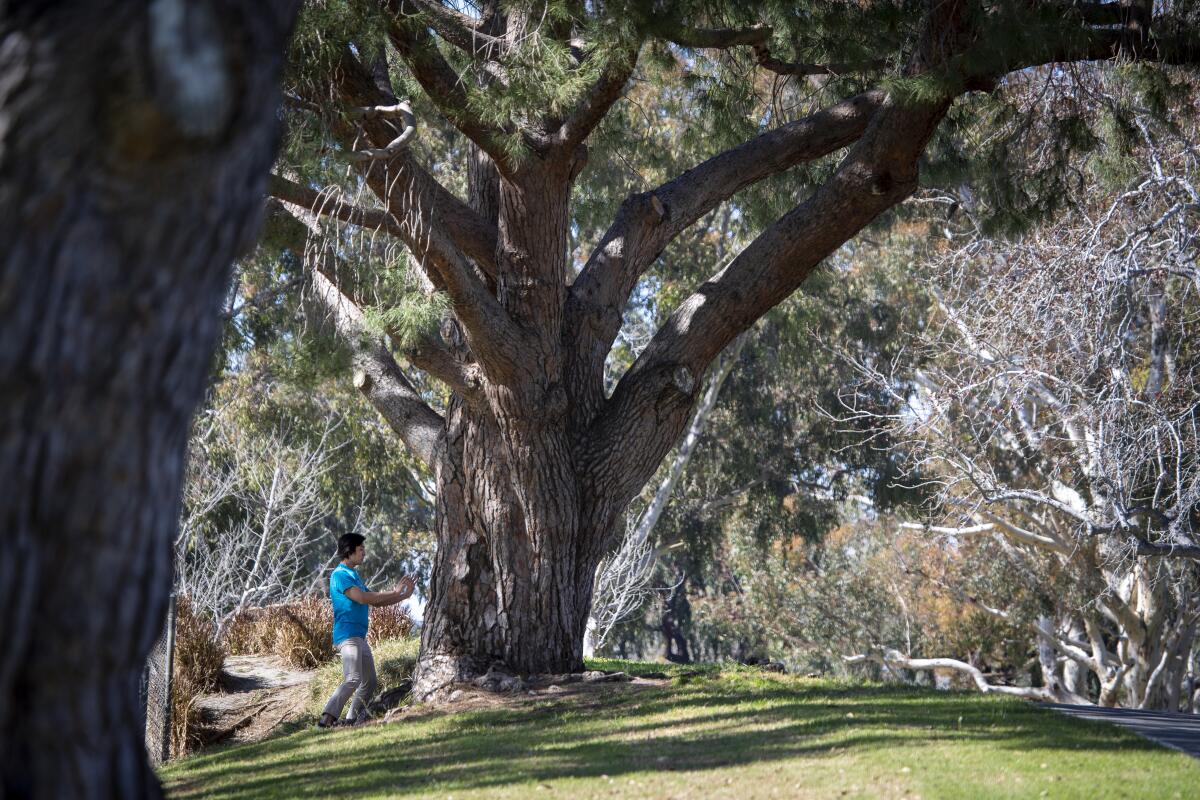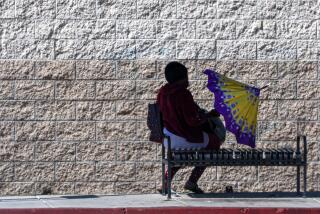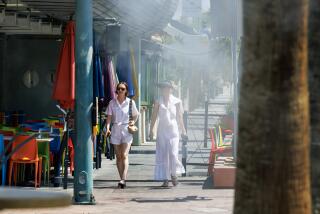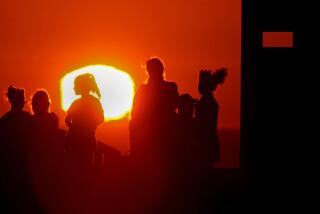Heat wave breaks records at LAX and Long Beach Airport

Record high temperatures heat up Southern California as a high-pressure ridge is rerouting winter storms that typically soak the region.
Sandals and swimsuits were in order Thursday as Mother Nature cranked up the heat, breaking records in Los Angeles County.
The unseasonably warm weather was the result of a high-pressure ridge that’s lingered over the eastern Pacific Ocean for much of January and February, rerouting winter storms that typically soak California to the Pacific Northwest.
“It’s not unusual to get these mini warm spells in January and February, but it’s going to be a very warm day for the coastal plain,” said Richard Thompson, a meteorologist with the National Weather Service in Oxnard.
The mercury rose to 85 degrees at Los Angeles International Airport, breaking a previous record of 83 degrees set on the same date in 1992. Long Beach Airport reached 84 degrees, nudging past the record of 83 degrees set in 1992, according to weather service data.
Temperatures in downtown Los Angeles and UCLA rose to 86 and 83, respectively, meeting daily records also set in 1992.
Elsewhere in the Los Angeles area, high temperatures ranged from the low 80s to 90 degrees on Thursday, which was predicted to be the warmest day of the week.
Temperatures are expected to fall by a few degrees Friday. But by Saturday, the mercury is expected to drop about 10 degrees — into the low 70s — for much of the Southland.
By Sunday, wet weather is expected to return to the area, with a slight chance of rain before 10 a.m. followed by a chance of showers until 4 p.m. The storm is expected to drop less than a quarter inch of rain across Los Angeles, Ventura and Santa Barbara counties, according to the weather service.
After a wet ending to 2019, rainfall has been lackluster in California in January and February, causing some consternation among weather experts.
Downtown Los Angeles has received just 0.04 of an inch of rain this month, a sharp contrast to February 2019, when a series of atmospheric rivers hammered the area with rain, dumping 5.59 inches downtown and keeping the mercury below 70 degrees all month.
The lack of rain has also taken its toll on the Sierra Nevada snowpack, a key source of the state’s water supply. As of Thursday, the statewide snowpack measured 46% of average for the time of year. At roughly the same time last year, the snowpack measured 151% of average.
More to Read
Sign up for Essential California
The most important California stories and recommendations in your inbox every morning.
You may occasionally receive promotional content from the Los Angeles Times.











